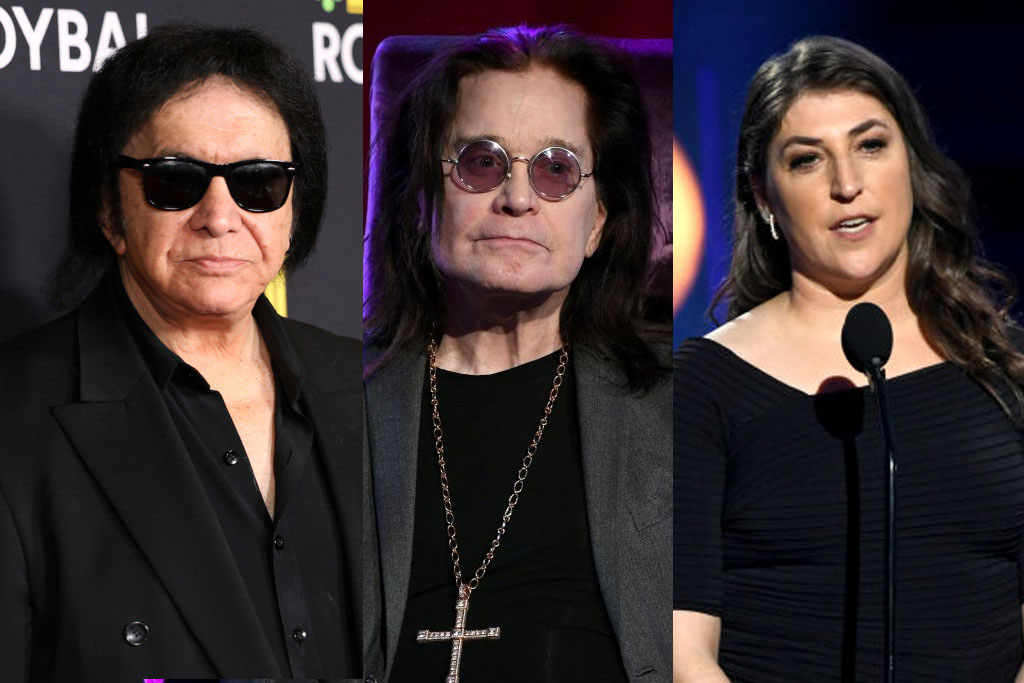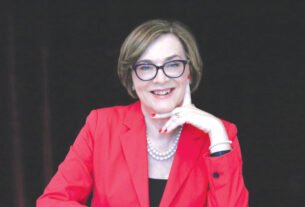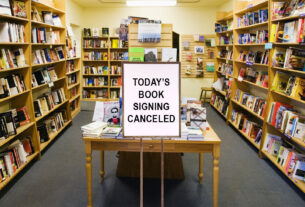More than 1,000 prominent figures from literature and entertainment have signed an open letter organized by the nonprofit Creative Community for Peace (CCFP), to oppose boycotts “of Israeli and Jewish writers, publishers, authors, book festivals, and literary agencies, along with those who support, work with, or platform them.”
The signatories include Nobel laureates, Pulitzer Prize winners, actors, executives and music icons, highlighted by philosopher and author Bernard-Henri Lévy; playwright, author and Nobel Prize winner Elfriede Jelinek; author and Pulitzer Prize winner David Mamet; Pulitzer Prize winning New York Times columnist Bret Stephens; author and Nobel Prize winner Herta Müller, singer Ozzy Osbourne; TV personality Sharon Osbourne; Kiss singer and bassist Gene Simmons; actress Julianna Margulies; actor Jerry O’Connell; music executive Scooter Braun; chairman and CEO of Mattel Ynon Kreiz; chairman and CEO of Saban Capital Group Haim Saban, and Warner Records CEO/co-chairman Aaron Bay-Schuck.
The letter expresses “shock” and “disappointment” at what CCFP describes as the tolerance of harassment and ostracization of Israeli and Jewish creatives in the literary world over the past year. Since Oct. 7, 2023, the day marking the largest single-day murder of Jews since the Holocaust, Israeli and Jewish creatives have faced high-profile jeers and outright cancellations of events and projects.
The website Literary Hub has published multiple reports each month since November 2023 criticizing Israel in connection with Palestinian casualties in the war with Hamas.
On Jan. 31, protesters from Writers Against The War on Gaza disrupted a PEN America event in Los Angeles featuring Moshe Kasher and Mayim Bialik.
On March 12, Book Workers for a Free Palestine organized a protest outside one of London’s largest book fairs. At the event, demonstrators quoted lines from a poem by the late Palestinian writer Refaat Alareer. In response to reports of atrocities by Hamas on Oct. 7, Alareer quipped on X, “with or without baking powder?” He was killed in an airstrike two months later.
In May, an account on X shared a spreadsheet titled “Is Your Fav Author a Zionist?” and encouraged harassment and divestment.
In August, a book talk in Brooklyn featuring debut author Joshua Leifer and Reform Rabbi Andy Bachman was canceled after the bookstore owner cited not wanting a “Zionist on stage.”
This past month, Shelf Awareness, an online magazine for publishers and booksellers, refused to advertise Bernard-Henri Lévy’s new book, “Israel Alone,” stating that it “could cause trouble that independent bookstore partners haven’t asked for and don’t wish to have.”
CCFP warns that such boycotts ultimately “subvert the spirit” of art’s openness. “Boycotts against authors and those who work with them is illiberal and dangerous,” the letter states. “In fact, we believe that writers, authors, and books — along with the festivals that showcase them — bring people together, transcend boundaries, broaden awareness, open dialogue, and can affect positive change.”
Founded in 2011, CCFP began as a response to support cultural exchange and defend artists amid the Boycott, Divestment and Sanctions movement (BDS). CCFP co-founder David Renzer, then chairman and CEO of Universal Music PublishingGroup, initiated the organization following high-profile cancellations by musicians like Elvis Costello and Pink Floyd’s Roger Waters. “And here we were, people from the entertainment industry, kind of looking at each other, troubled by these cancellations and saying, ‘We need to do something,’” Renzer told The Journal in 2022. Now in its 13th year, CCFP’s voice faces new challenges amid heightened calls for cultural boycotts.
Over the years, CCFP has provided a platform for entertainers and other creative industry professionals to sign petitions and fostered conversations about the harms caused by the BDS movement against Israel.
“This is a coordinated campaign to bully and threaten anyone who refuses to condemn Israel, targeting Jews and their allies worldwide,” CCFP Executive Director Ari Ingel said in a press release. “These boycott calls, led now by members of the literary community themselves, are reminiscent of the 1933 boycott of Jewish authors, when antisemites burned over 25,000 books. The works of Jewish authors like Albert Einstein and Sigmund Freud, alongside American works by Ernest Hemingway and Helen Keller, were burned. This is where things are once again headed.”
“These boycott calls, led now by members of the literary community themselves, are reminiscent of the 1933 boycott of Jewish authors, when antisemites burned over 25,000 books. The works of Jewish authors like Albert Einstein and Sigmund Freud, alongside American works by Ernest Hemingway and Helen Keller, were burned. This is where things are once again headed.” – Ari Ingel
Booker Prize-winning author Howard Jacobson was among the signatories to point out that censorship in the arts is contradictory to its purpose.
“Art is the antithesis to a political party,” Jacobson stated in the press release. “It is a meeting place, not an echo chamber. Art explores, discovers, differs, questions, and surprises. Precisely where a door should be forever open, the boycotters slam it closed.”
Actress and author Mayim Bialik also spoke out, calling identity-based boycotts “disturbing and polarizing …
Attempts to dictate ‘who’ or ‘what’ should be published have nothing to do with any path to coexistence or peace,” Bialik said.
The former “Jeopardy!” host was recently honored by CCFP as an “Ambassador of Peace,” for her steadfastness in publicly standing up against antisemitism. That night, she told The Journal, “a lot of people didn’t and probably still don’t understand the basic definition of Zionism — that it’s a belief in the right of Jewish people to have a state in our historical homeland. It seems like a basic definition that a lot of people don’t understand. But I think also one of the things that I’ve learned from CCFP is about the level of nuance that is involved in understanding any of these topics at all, and the amount of work that everyone here puts into correcting misinformation, and also giving me and others like me the tools to be able to communicate effectively.”
As Israel faces continued attacks from Hamas, Hezbollah, and Iran, calls across the arts to disavow Israeli and Jewish creators are likely to persist. Still, CCFP and the over 1,000 signatories conclude their latest letter with a call for more in the industry to take a stand.
“Regardless of one’s views on the current conflict, boycotts of creatives and creative institutions simply create more divisiveness and foment further hatred,” the letter says. “We call on our friends and colleagues worldwide to join us in expressing their support for Israeli and Jewish publishers, authors, and all book festivals, publishers, and literary agencies that refuse to capitulate to censorship based on identity or litmus tests.
The full text of the letter can be viewed on CCFP’s website: https://www.creativecommunityforpeace.com/blog/2024/10/29/authors




